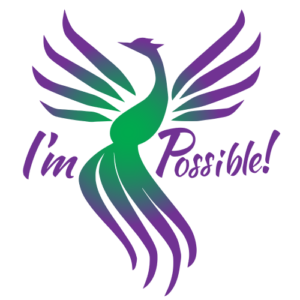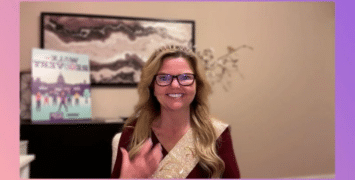Your cart is currently empty!

Monday Thoughts 5/24/2021

“There is always a new beginning.”
~~Mary Wollstonecraft Shelley
“Every new beginning comes from some other beginning’s end.”
~~Seneca
“You may have a fresh start any moment you choose.
For this thing that we call ‘failure’ is not the falling down, but the staying down.”
~~Mary Pickford
#9 The past is gone forever.
No longer am I victimized by the past. I am a new woman.
Sobriety and Statement #9 in action can bring about lasting change and can instill feelings of a fresh start or new beginning. Oftentimes for women in recovery, the past can hang over us like a dark cloud, limiting our ability to enjoy a fulfilling life. WFS and in particular, Statement #9, create a portal for a New Life that feels fulfilling and life affirming.
Connected to the past are two emotions: shame and guilt. Both are challenging to move through yet Statement #9 in action helps to progress through them. Yet what are they exactly? It is easy to lump both of them together, yet they are two separate emotions. According to Kristalyn Salters-Pedneault, PhD: You may sometimes confuse shame with guilt, a related but different emotion.
Guilt is a feeling you get when you did something wrong, or perceived you did something wrong.
Shame is a feeling that your whole self is wrong, and it may not be related to a specific behavior or event.
When you feel guilty about the wrong thing you did, you can take steps to make up for it and put it behind you. But feeling shame or being convinced that you are the thing that’s wrong, offers no clear-cut way to “come back” to feeling more positive about yourself. That’s one difference between shame and guilt.
Guilt
Feeling remorse or responsible for something you’ve done wrong or perceived you did wrong. Relating to a specific action like making a mistake, committing an offense, or hurting someone (intentionally or unintentionally)
Shame
Feeling that you are bad, worthy of contempt, or inadequate as a person. Relating to our behavior or self, often in relation to other people’s opinions, not necessarily about a specific behavior or event
How Shame Happens
From the day you were born, you were learning to feel that you were okay or not okay, accepted or not accepted, in your world. Your self-esteem was shaped by your daily experiences of being praised or criticized, lovingly disciplined or punished, taken care of or neglected.
People who grow up in abusive environments can easily get the message that they are undeserving, inadequate, and inferior—in other words, that they should feel ashamed.
Over time, intense feelings of shame can take hold of a person’s self-image and create low self-esteem. Feelings of shame often stem from what other people think. The person may become super-sensitive to what feels like criticism, even if it isn’t, and may feel rejected by others. Inside, they feel painful self-contempt and worthlessness.”
This week, embrace new beginnings and examine your feelings. Identify guilt or shame that you have felt in the past or recently.
What behaviors are linked to guilt or shame?
How did you move through these difficult feelings? What tools did you use? Is there an area in your life that needs a bit more attention?
Hugzzz
Karen
Hi 4C Women,
In healing from the past, I have learned that using shame or guilt as a motivator to cure addiction is an absolute myth. I read an article online from The Clearing which addressed this and clearly stated that shaming only reinforces the intense feelings of unworthiness. The one sentence in the article that spoke to me was, “Shame doesn’t heal addiction, it only does damage.” For myself in early sobriety, I struggled to release the painful past of shame. I felt I deserved to punish myself and couldn’t quite grasp the concept of no longer victimizing myself. My life experience was filled with rejection so I obviously was flawed. Another article I read from NICABM talks about Guilt vs Shame and how we need to learn the difference as we heal from the past. There is helpful guilt which directs us to “learn” from hurting or harming ourselves or others.
Unhealthy guilt leads us to emphasize self-punishment over behavior change, trapping us in guilt. I was stuck in the guilt trap and yet was determined to become a new woman in my New Life. As I practiced releasing the past, I also had to acknowledge that there were times of acceptance, being loved but I didn’t trust it to be real or lasting in the past. The feelings of rejection took over. This is why I value the WFS program. It wasn’t just about not drinking, it was about digging deep to uncover the hurt I was unnecessarily causing myself and to discover ways to love and forgive myself. After all, I cannot change the past. I can learn and heal from it with a lot of introspection and truth finding. Forgiveness empowered me. As Dr. Phil wrote in “Making peace with your past: Choosing Forgiveness: The pain of what happened is inevitable but continuing to suffer is optional. The only person you can control is you. By constantly reliving the pain of what happened, you are giving your power away. You can’t change the things that happened in your life, but you can decide how you interpret and respond to them. If you didn’t receive support when you needed it, give it to yourself now.”
All of these bits and pieces from what I have read and learned from over the years is all because of the WFS program, the supportive women I have met and choosing to heal from the past. If pain knocks on my door, I will let it visit, giving me time to regain my power and forgiveness. I no longer let it stay and sometimes, I don’t even open the door! Where are you on the journey of releasing the past, healing and empowering yourself?
Bonded in releasing, healing and being empowered, Dee
Speaker Highlights for the WFS Virtual Conference 2021 include some familiar names: .O – Sharon Salzberg – Dr. Rebecca Ray – Ester Nicholson – Mary Beth O’Connor.
Full Presenter Bio’s and Workshop descriptions are available now! To read more, visit: conference.womenforsobriety.org/
Register today!




